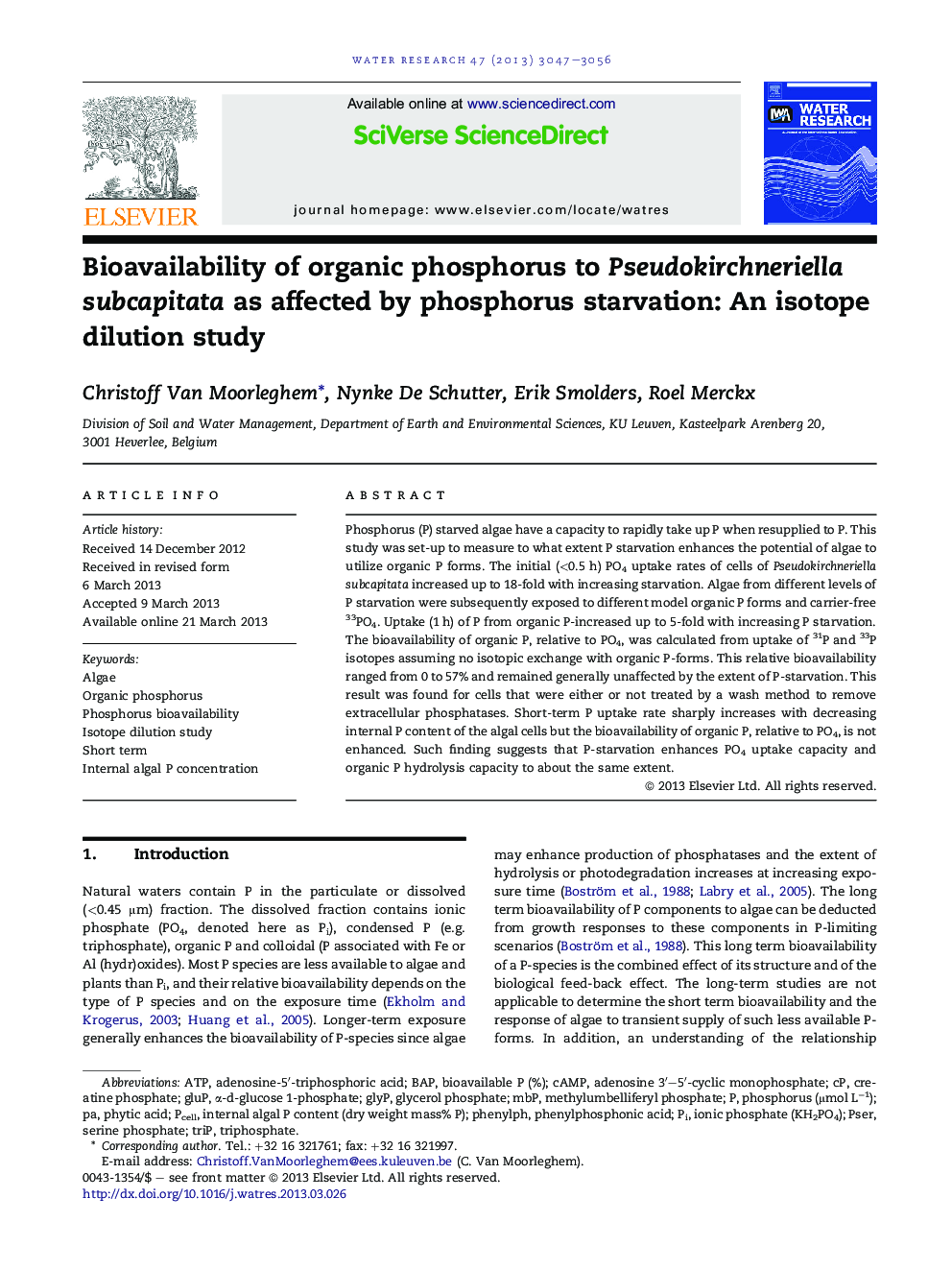| Article ID | Journal | Published Year | Pages | File Type |
|---|---|---|---|---|
| 4482120 | Water Research | 2013 | 10 Pages |
Phosphorus (P) starved algae have a capacity to rapidly take up P when resupplied to P. This study was set-up to measure to what extent P starvation enhances the potential of algae to utilize organic P forms. The initial (<0.5 h) PO4 uptake rates of cells of Pseudokirchneriella subcapitata increased up to 18-fold with increasing starvation. Algae from different levels of P starvation were subsequently exposed to different model organic P forms and carrier-free 33PO4. Uptake (1 h) of P from organic P-increased up to 5-fold with increasing P starvation. The bioavailability of organic P, relative to PO4, was calculated from uptake of 31P and 33P isotopes assuming no isotopic exchange with organic P-forms. This relative bioavailability ranged from 0 to 57% and remained generally unaffected by the extent of P-starvation. This result was found for cells that were either or not treated by a wash method to remove extracellular phosphatases. Short-term P uptake rate sharply increases with decreasing internal P content of the algal cells but the bioavailability of organic P, relative to PO4, is not enhanced. Such finding suggests that P-starvation enhances PO4 uptake capacity and organic P hydrolysis capacity to about the same extent.
Graphical abstractFigure optionsDownload full-size imageDownload high-quality image (145 K)Download as PowerPoint slideHighlights► The P bioavailability was examined in function of initial algal P content (Pcell). ► Accumulation of PO4 and organic P increases with decreasing Pcell. ► The bioavailability of organic P compounds remained unaffected by Pcell. ► The bioavailability ranged 0–57% among the tested compounds.
